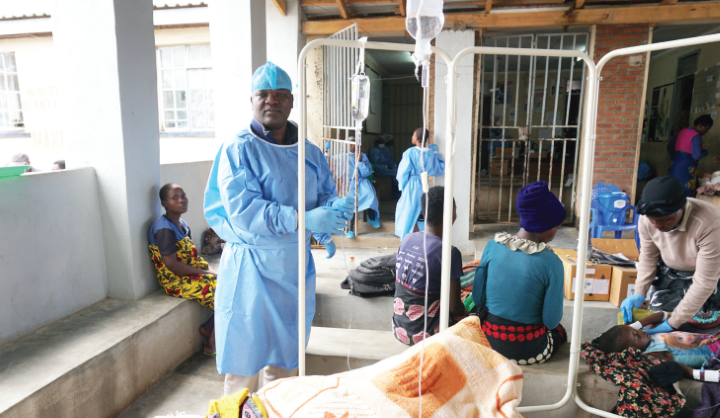Curbing the rising Intimate Partner Violence
A study by Coalition of Women Living with HIV/Aids [Cowlha] has revealed that intimate partner violence (IPV) is failing to tone down in Malawi. Ephraim Nyondo explores the issue further.
Thyolo, in southern Malawi, is one district mostly devastated by HIV and Aids. As expected, women are worst infected than men.
Cowlha deals with 4 000 HIV positive women across the district. These women are organised in 72 support groups drawn from 13 traditional authorities.
Marrieta Kandoje [not real name]—the one we told her story on Friday—belongs to Tomasi Support Group in Thyolo. I had a chance to meet with 15 members of this support group sometime last month.
Ten of these women confessed to have ever suffered intimate partner violence (IPV). Surprisingly, there are a number organisations working in their area—and they all agreed—to fight against stigma, IPV and discrimination.
Yet despite this, IPV against women living with the virus continues. In fact, as shown by the Cowlha’s survey, it continues to torment women nationwide.
Maria Zuze, Cowlha’s district coordinator for Thyolo, says men’s reluctance to go for voluntary counselling and testing (VCT) is one serious case.
“Openness in matters of HIV among couples still remains a challenge in the country. When a woman, after refusal from the husband, goes alone to VCT and gets diagnosed with HIV, disclosing to the husband becomes a big problem,†she says.
What results, adds Zuze, is a series of blame game. “The husband ends up living with a feeling that the wife was cheating on him…and coupled with lack of counselling, he starts to hate the wife. He no longer treats her like a wife,†she says.
Such a situation is well watered by the economic situation of most women, which defined power relations in marriage.
“Most of us women, here, haven’t gone far with school. Most of us do not have any income generating activity. We solely depend on our husbands. This puts us at their mercy,†says Mary Nawichi member of Tomasi Support Group.
Despite her status, her husband, who once went for VCT once almost a year after she had hers, tested negative. That was in November, 2010. Since then, he has never gone back.
“I live in torture. His thinking is that I got the virus outside marriage. But I keep telling him that it is possible to be found negative at one location and get diagnosed with it at another. He doesn’t understand. The marriage is on and off.
“Surprisingly, though he knows that I am positive and I am on ARV’s, he refuses to use a condom. I am advised at HTC that I should always use a condom when having sex. When I object, I end up being beaten, being reported to elders that I am failing to meet my conjugal rights,†she says.
In fact even, Annie Banda, Cowlha’s national coordinator, agrees that most women who are living positively are forced by their husbands to have sex with them without using a condom.
“Most women found themselves in this situation because of power dynamics within Malawi’s marriages. Men are considered the decision-makers; to mean, wives are supposed to obey everything a husband demands,†she says.
Banda’s wisdom agrees with what other thinkers have argued that the abuser wants to dominate the victim/survivor and wants all the power in the relationship-and uses violence in order to establish and maintain authority and power.
She also adds that cultural practices that make women vulnerable to their husbands also come into picture.
“There are also cultural practices and rituals such as Kulowa Kufa, Bzade, Kutsasa Fumbi and Kupondera Moto, Ngozi kapena Bwato that propel IPV of sexual nature, especially in Thyolo and Nsanje districts.
“The key consequences of IPV include refusal to continue ART by the offended partners, inconsistency in following ART and HTC guidelines and advice, poor management of opportunistic infections (OIs), unplanned pregnancies, promiscuous behaviour and increased exposure to HIV,†she says.
These stories coming from Thyolo do not just end there. They are stories that resonate with a number of women living positively across the country.
“There is an urgent need for economic empowerment of vulnerable women with HIV, who remain the biggest victims of HIV related IPV,†says Banda.
And she doesn’t stop there.
“There is also an urgent need to clarify on whether HIV testing is compulsory at ANC following the integration of PMTCT with ANC services as a means of increasing male involvement in HTC,†she adds.
Â
TOMORROW: One of the common forms of IPV against HIV positive women comes in form of being forced to have sex without a condom which is against advice from medical personnel. Such a tendency is also known as marital rape. Cowlha is then advancing that government should criminalise the practice. How credible are such calls?
Â





